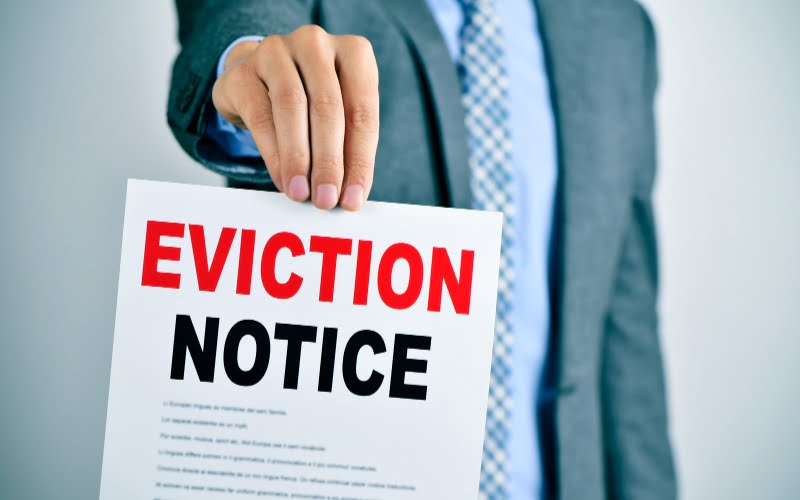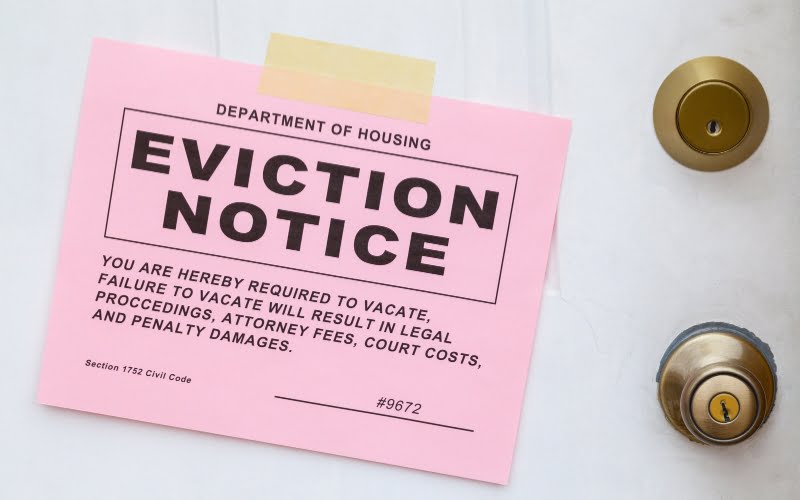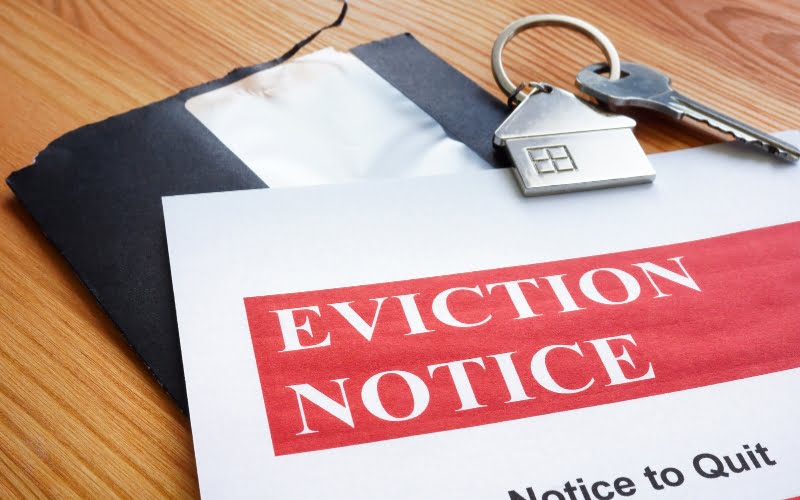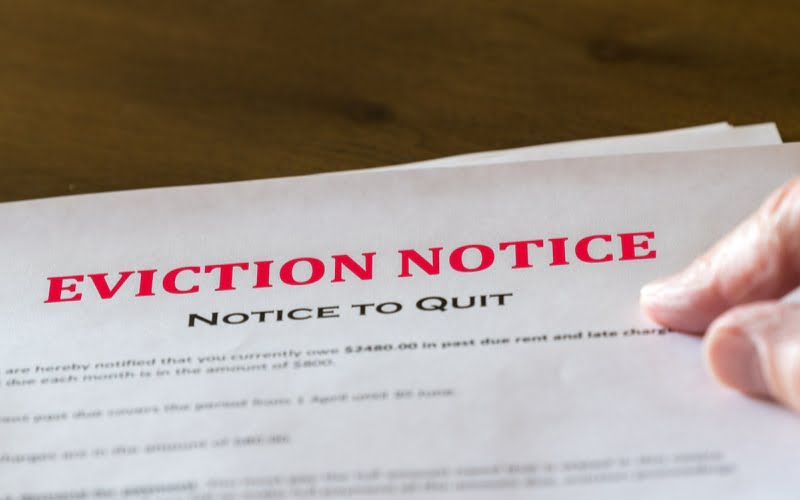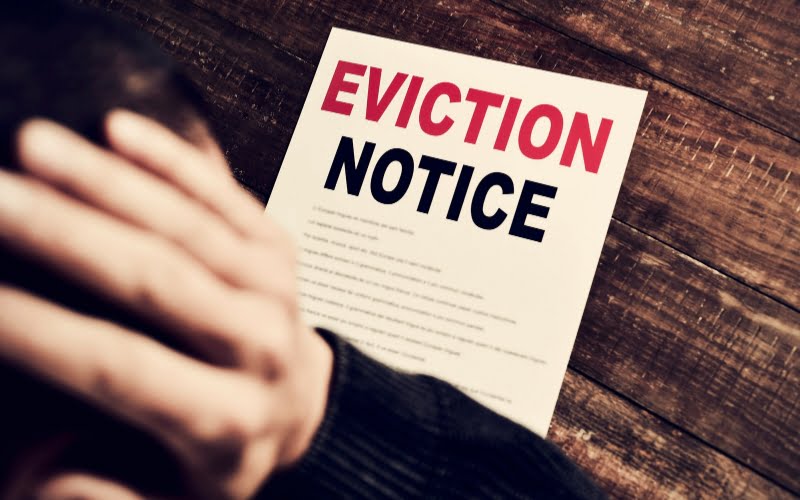Last Updated on March 18, 2024 by Kelvin Nielsen
The Arizona Landlord Tenant Act allows immediate eviction of tenants in Arizona. Continue reading to learn more about the step-by-step process you must follow when evicting a tenant from your property.
Tenant evictions in Arizona follow the same process. The following is a basic overview of the process.
- Have a legal ground to evict the tenant. Common legal causes include nonpayment of rent, end of lease, no lease, habitability violation, and lease violation.
- Serve the tenant with an eviction notice. Examples of eviction notices in Arizona include 5-Day Notice to Quit, 30-Day Notice to Vacate, 5-Day Notice to Comply or Vacate, and Immediate Notice to Vacate.
- File a complaint in either a Justice Court or a Superior Court.
- Wait for the tenant to respond to the eviction. Here, the tenant gets an opportunity to fight the eviction.
- Attend the court hearing and wait for judgment.
- Obtain a Writ of Restitution if the judgment is in your favor.
- Obtain possession of the property even if it means having to forcefully evict the tenant.
Self-help, retaliatory, and discriminatory evictions are all illegal in Arizona. The only way to successfully evict a tenant is through a court order (Writ of Restitution).
Immediate Evictions Arizona
Usually, tenant evictions require that the landlord serve the tenant with an eviction notice. The notice gives the tenant a certain duration upon which to remedy the violation they have committed.
However, this does not always apply in all situations. A case in point is when the tenant has committed an illegal activity. In such a case, you don’t have to provide them with any prior notice before evicting them.
In Arizona, you can evict a tenant immediately for doing any of the following while at the property.
- Discharging a weapon
- Committing homicide
- Prostitution
- Physical assault
- Criminal street gang activity
- Threats and intimidation to other people
- Serious property damage
- Dealings with controlled substances
- Nuisance
If the tenant commits any of the following, you must serve them with an Immediate Notice to Vacate. If the tenant doesn’t leave, you must follow the following eviction process to remove them from your property.
How to Evict a Tenant Immediately in Arizona
Step #1: File a complaint in a Justice Court.
The next step is filing a lawsuit in a Justice Court.
You’ll need to submit two documents for the notarization to be successful: a Complaint Form and a Summons Form.
Step #2: The tenant is served.
After your lawsuit has been notarized by the court’s clerk, copies of the Summons and Complaint will be issued. These will then need to be served to the tenant using a process server.
The process server, typically a sheriff or a constable, will need to serve the documents in a particular manner. The following are the options.
- Serve a copy in person.
- Leave a copy with someone of suitable age who lives with the tenant.
- Deliver a copy to the tenant’s attorney, or any other agent authorized to act on their behalf.
You can generally expect the court hearing to be held no later than 5 days after filing the complaint.
Step #3: The tenant files an answer.
Arizona tenants have a right to respond to their landlord’s allegations. The tenant must submit the answer on or before the initial appearance.
The tenant can choose to fight or admit the landlord’s allegations are true. If the tenant chooses to fight their eviction, the following are some of the defenses they can give.
- The eviction notice you served them had critical errors.
- The eviction notice was served irregularly.
Step #4: Hearing is held.
Once the complaint is successfully filed, you can expect the hearing to take place within 5 days.
If the judgment is in your favor, the court will issue you with a Writ of Restitution. This will give the tenant 5 calendar days to move out after the judgment is entered. If they refuse to leave, the sheriff will have to evict them forcefully. The only exception here is if the tenant files an appeal which will delay their eviction.
Frequently Asked Questions (FAQs): Immediate Eviction Arizona
Q: How fast can you evict someone in Arizona?
A: The fastest way to evict a tenant is by serving them an Immediate Notice to Vacate. The tenant must have committed an illegal activity, however, for you to serve them the notice. If all goes well, the process can take as early as a week to complete.
Q: How do I legally evict someone in Arizona?
A: You must follow the Arizona eviction process down to the letter. The following is a basic overview of the process you’ll need to follow to successfully evict the tenant.
- Have a legal cause to evict the tenant.
- Serve them with an eviction notice.
- File a Summons and Complaint in either a Justice or a Superior Court depending on the size of the lawsuit.
- Wait for the tenant to file an answer if they choose to.
- Attend the court hearing.
- Get possession of the property back if the judgment is entered in your favor.
Q: What is a 5-Day Eviction in Arizona?
A: This is a type of eviction notice that you can serve a tenant for nonpayment of rent. Known as 5-Day Notice to Quit, it gives a tenant 5 calendar days to either pay the balance due or move out of the premises.
If the tenant doesn’t pay and continues to stay on the property, you can move to court and file an eviction lawsuit.
Q: How do I evict a tenant without a lease in Arizona?
A: You must begin the process by serving the tenant a 30-Day Notice to Vacate. This will allow the tenant a maximum of 30 calendar days to move out. If they refuse to leave within the 30 days, you can proceed to court to file an eviction lawsuit.
Conclusion
Arizona law allows landlords to take an immediate eviction action on a tenant who has committed an illegal activity. However, you have an obligation to ensure the entire process follows the law for a successful eviction.
Disclosure: The content herein isn’t a substitute for advice from a professional attorney. It’s only meant to serve educational purposes. If you have a specific question, kindly seek expert attorney services.
Sources: Arizona Residential Landlord and Tenant Act, https://www.azcourts.gov/, https://housing.az.gov/,

Hi, I’m Kelvin Nielsen, an experienced landlord and accomplished real estate lawyer. My focus is on answering your questions about renting in the hopes of making your life as a renter or a landlord a bit easier.

